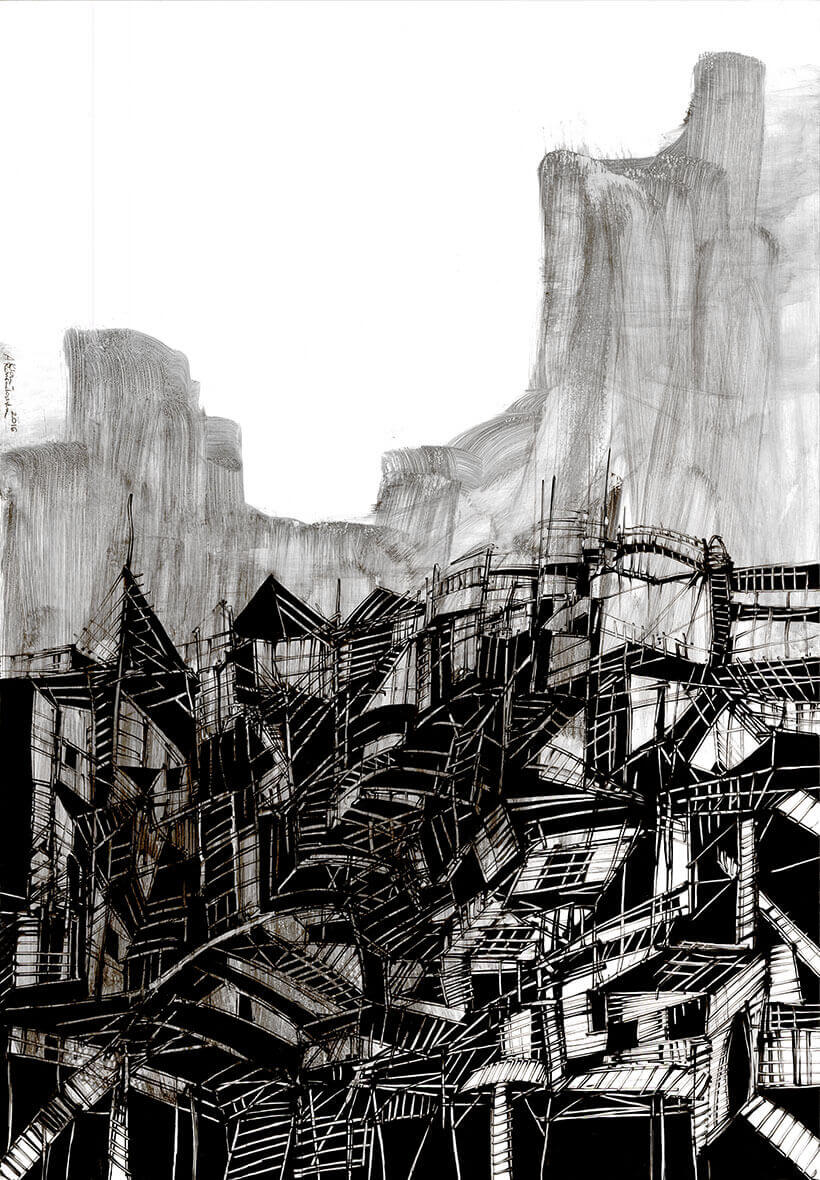
“You can resume your flight whenever you like,” they said to me, “but you will arrive at another Trude, absolutely the same, detail by detail. This was the first time I had come to Trude, but I already knew the hotel where I happened to be lodged I had already heard and spoken my dialogues with the buyers and sellers of hardware I had ended other days identically, looking through the same goblets at the same swaying navels. The downtown streets displayed goods, packages, signs that had not changed at all. Following the same signs we swung around the same flower beds in the same squares. The suburbs they drove me through were no different from the others, with the same little greenish and yellowish houses. If on arriving at Trude I had not read the city’s name written in big letters, I would have thought I was landing at the same airport from which I had taken off. But I cannot force my operation beyond a certain limit: I would achieve cities too probable to be real.”ģ cities that are most striking (in my first reading of the book, at least): So I have only to subtract exceptions from my model, and in whatever direction I proceed, I will arrive at one of the cities which, always as an exception, exist. If such a city is the most improbable, by reducing the number of abnormal elements, we increase the probability that the city really exists. “It is a city made only of exceptions, exclusions, incongruities, contradictions. “I have also thought of a model city from which I deduce all the others,” Marco answered. Since the cities that exist diverge in varying degree from the norm, I need only foresee the exceptions to the norm and calculate the most probable combinations.” “It contains everything corresponding to the norm. “And yet I have constructed in my mind a model city from which all possible cities can be deduced,” Kublai said. “Or the question it asks you, forcing you to answer, like Thebes through the mouth of the Sphinx.” You take delight not in a city’s seven or seventy wonders, but in the answer it gives to a question of yours.” “Cities also believe they are the work of the mind or of chance, but neither the one nor the other suffices to hold up their walls. “I have neither desires nor fears,” the Khan declared, “and my dreams are composed either by my mind or by chance.”

"Cities, like dreams, are made of desires and fears, even if the thread of their discourse is secret, their rules are absurd, their perspectives deceitful, and everything conceals something else.” Or perhaps, speaking of other cities, I have already lost it, little by little.” “Perhaps I am afraid of losing Venice all at once, if I speak of it. “Memory’s images, once they are fixed in words, are erased,” Polo said. The lake’s surface was barely wrinkled the copper reflection of the ancient palace of the Sung was shattered into sparkling glints like floating leaves. “You should then begin each tale of your travels from the departure, describing Venice as it is, all of it, not omitting anything you remember of it. “To distinguish the other cities’ qualities, I must speak of a first city that remains implicit.

And about Venice, when I ask you about Venice.” “When I ask you about other cities, I want to hear about them.

“And yet I have never heard you mention that name.”Īnd Polo said: “Every time I describe a city I am saying something about Venice.” “What else do you believe I have been talking to you about?”

“There is still one of which you never speak.”


 0 kommentar(er)
0 kommentar(er)
